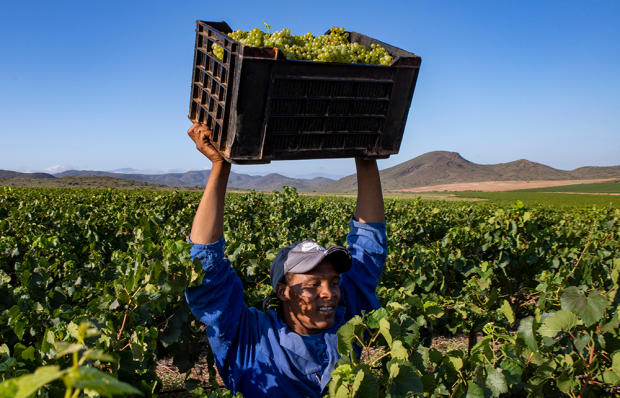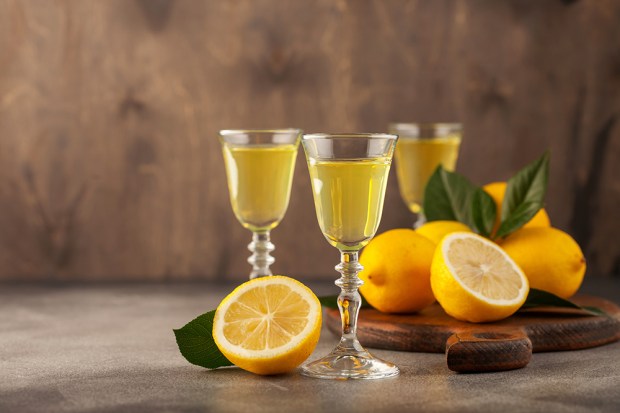Any Australian who admits to not having convict ancestors loses caste. When granted a coat of arms, the smart ones always include fetters. It is the Oz equivalent of claiming that your ancestors came over with William the Conqueror. But it was not always thus. In the Adelaide of the 1890s, there was a family called Strangways Wigley, who had paid for their tickets and never stopped swanking about it. But they had a blot on the escutcheon in the form of young Robert. He was determined to rectify the lack of criminal blood.
In those days, a pieman — as opposed to a swagman — used to sell his wares in the town centre. He was especially popular towards the end of the evening, when the ockers needed ballast to soak up the grog. But one night, Robert hitched his horse to the pieman’s wagon and took off. A glorious chase ensued. The entire town took part. The air was full of view-
hallooing; all the men were waving their corked hats. Finally, Robert was captured and spent the night in the lock-up. The locals were delighted that the snobs had been discomfited. The Strangways Wigleys were mortified. Before he could add to the disgrace, Robert was transported, to the wine country in McLaren Vale.
There, he planted the Wirra Wirra vineyards. But the course of true winemaking never did run smooth. Although he was a good taster, the other aspects of the trade were neglected. The bush reasserted itself. Rescue came in 1969 from the late Gregory Trotter. Trotty — the customary usage — was not a snob. He may well have been the swagman’s descendant. But he created a serious vinery, with a range of impressive bottles, too few of which find their way to the UK.
There is a difference between the Californian and Australian wine trades. When they describe their wares, some Californians sound like ballet teachers. There is none of that among the penal colonists. Their word for precious is ‘Pommy poofter’. Trotty brought science and expertise to the business, but would never have admitted it. If anyone had accused him of an Etonian horror of being caught working, it would be amusing to decide who would have been more horrified:-Trotty, or Eton.
When he flew to Melbourne, he could not be dissuaded but always wore the same costume: shorts and welly-boots. Perhaps he overestimated the chances of rus in urbe in that city, and hoped to come upon an unsuspecting sheep, safely grazing. He decided to call one of his wines ‘Angelus’ because he liked the name. Château Angelus, a premier grand cru from St Emilion, was unamused. A formidable-looking letter arrived at Wirra Wirra. As it was in French, Trotty and his wellies had to set off to the city to find a translator. The Australians were instructed to cease and desist, or face peine forte et dure. So the name was changed to Dead Ringer.
We tasted the ’09 the other evening. The name is an exaggeration. For a start, Angelus has hardly any cabernet sauvignon; Dead Ringer, 100 per cent. But it was jolly good. Drinking well now, it will last for at least a decade. At around a tenth of the price of its French elder brother, it is excellent value. So were the Absconder, a grenache; the 12th Man chardonnay — and the Church Block, a shiraz, merlot and cab sauv blend. All of them were young and forward; none is likely to fall apart any time soon. We were dining in a London neighbourhood which supplied many involuntary colonists; Bethnal Green, at the Water House Project, a dining club cum restaurant which I would highly recommend. Committed to their art, its foodie owners are delighted to discuss menus and ingredients. Our food ranged from really good dinner-party nosh to a couple of dishes worth a Michelin rosette. Wirra Wirra in Bethnal Green; I suppose that is called diversity.
The post Winemaking with convictions appeared first on The Spectator.
Got something to add? Join the discussion and comment below.
Get 10 issues for just $10
Subscribe to The Spectator Australia today for the next 10 magazine issues, plus full online access, for just $10.
You might disagree with half of it, but you’ll enjoy reading all of it. Try your first month for free, then just $2 a week for the remainder of your first year.















Comments
Don't miss out
Join the conversation with other Spectator Australia readers. Subscribe to leave a comment.
SUBSCRIBEAlready a subscriber? Log in